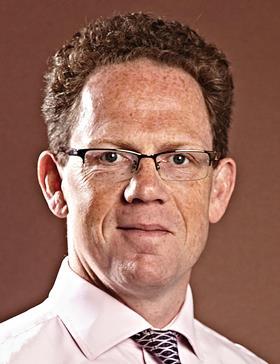There is a common misconception in the real estate industry that outsourcing property management activities to third-party managing agents is more efficient, saving both time and money.

In reality, the introduction of an intermediary results in a disintermediation between owner and occupier, with a managing agent in the middle who, very often, does not have the alignment, motivation or skillset to look after the needs of the occupier or run a building efficiently.
With a growing body of legislation covering energy consumption, waste and its reduction, combined with customer experience, there is an increasing burden on managing agents to provide services they are not equipped to offer.
The property manager now needs to actively participate in customer service, facilities maintenance and engineering, sustainability and CSR strategic thinking as well as rent collection and ‘changing the light bulbs’. The emergence of these areas as prerequisites for owners shines a spotlight on the existing industry skills gap.
The sustainability credentials of a property have become a central feature in the ownership of a building. An occupier wants to know that they can save money on energy consumption while limiting their environmental footprint. They want to know they are only using energy services when they are required and they have the option to monitor their consumption on a regular basis.
New approach
The integration of sustainable performance is arguably one of the most important changes to property management in recent years. The managing agent would ideally play a critical role in improving a building’s environmental performance. However, many third-party agents do not have the technical skillset, nor the incentive, to ensure sustainability.
By way of example, many multi-let offices are not operated in a way that provides the most effective environmental conditions for occupiers. As a consequence, their actual performance falls short of the intent. For the occupier, the incentive to have lower running costs and to make meaningful changes has been lost and the owner seldom knows there is a problem with the building’s performance.
There needs to be a commitment from property owners to work closely with the occupiers – a transparent relationship with a hands-on approach that can help establish what the consumer wants.
![]()
At Legal & General we are looking to create a new approach in the industry; we are challenging the convention and defining our own regime. While we still have more to do, we have made positive steps in our build-to-rent schemes and have an open dialogue with our residents. The strength of these direct relationships between owner and occupier helps us to provide a new standard of service and to positively respond to ever-changing market requirements.
Industry sentiment suggests that property managers are falling short of occupier expectations and this shortfall stems from a lack of communication between agent and occupier and the vast skills gap that exists within property management. Improvements need to be made to standards across the real estate management sector, starting with more consistent levels of service.
The property management industry doesn’t need to evolve; it needs reinventing. Disruptors and innovators have an opportunity to make a positive and significant difference in the sector.
Bill Hughes is head of Legal & General Investment Management – Real Assets






























No comments yet